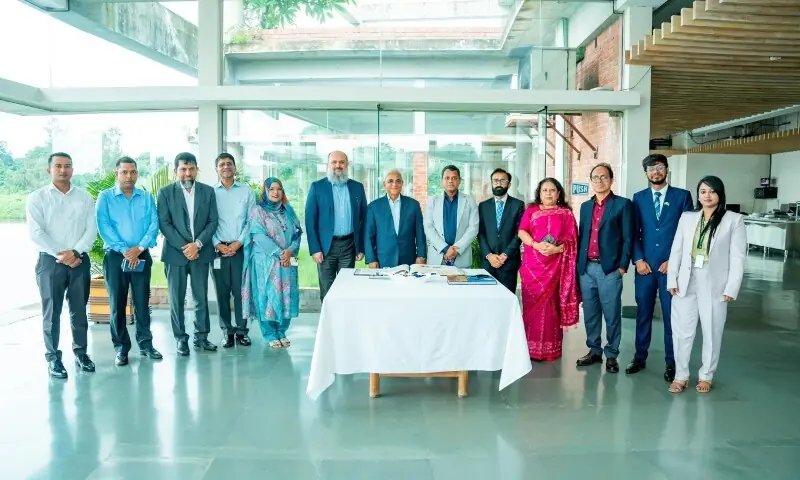ISLAMABAD: Pakistan’s Commerce Minister Jam Kamal’s recent visit to Bangladesh marked a pivotal step in resetting long-term bilateral relations, with the signing of several key agreements aimed at enhancing regional connectivity and investment.
The most significant outcome was the signing of a Memorandum of Understanding (MoU) to establish a joint working group on trade. This new forum will bring together commerce officials from both nations to explore opportunities for boosting bilateral commerce, trade, and investment.
Meanwhile, Foreign Minister Ishaq Dar’s trip to Dhaka also produced agreements on diplomatic visa waivers and institutional cooperation between foreign service academies, underscoring the growing diplomatic and economic momentum between the two countries.
Joint Economic Commission to be reactivated after 20 years
During his visit from August 20 to 25, Minister Kamal held a series of meetings with Bangladesh’s key advisers, including those for industries, food, and commerce. He also engaged with leading business figures and visited important Chambers of Commerce and Industry. These engagements laid the groundwork for further strengthening trade ties between the two nations.
A crucial meeting with Bangladesh’s Adviser for Commerce, Sheikh Bashir Uddin, resulted in an agreement to reactivate the Joint Economic Commission (JEC) forum, which had been dormant since its last meeting in 2005. The JEC will work to devise a comprehensive strategy to promote trade, investment, and economic collaboration between the two countries.
The discussions covered a wide range of sectors, including agricultural modernisation, renewable energy, steel industry, green ship-breaking, ship-building, dates, minerals, halal trade, sugar, leather, rice, and agro-processing. Both sides emphasised the need to improve trade connectivity and logistics to reduce costs and increase efficiency.
One of the key topics addressed was the reduction of tariffs and duties, as well as preferential access for certain Bangladeshi products to the Pakistani market. Both sides acknowledged the vast untapped potential for bilateral trade and expressed confidence that the people of both countries would benefit from increased cooperation.
In a separate meeting with Bangladesh’s Adviser for Industries, Adilur Rahman Khan, both sides underscored the importance of leveraging their respective economic and industrial strengths.
The discussions focused on critical issues such as food security, value addition in the food industry, and the alignment of industrial technology. Both countries agreed on the importance of mutual exchanges of expertise, delegations, and knowledge sharing to strengthen their industrial collaboration.
Kamal expressed Pakistan’s keen interest in becoming a partner in Bangladesh’s evolving industrial landscape through joint ventures, collaboration, and mutual investment.
Published in Dawn, August 26th, 2025

